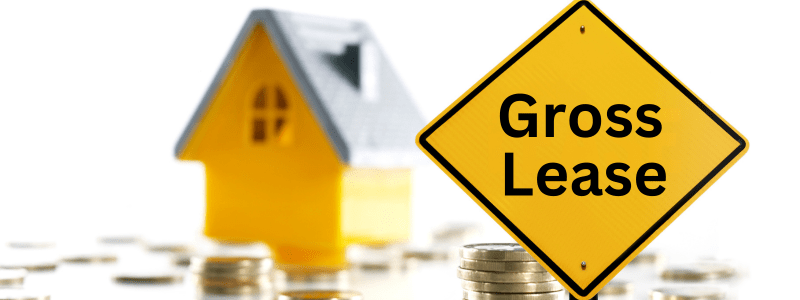
Are you curious how a gross lease can impact your real estate investments? If so, you’re in the right place. This article dives deep into the concept of a gross lease, highlighting why it’s a crucial consideration for real estate investors. Whether you’re new to the industry or looking to refine your strategy, understanding the ins and outs of gross leases can significantly influence your investment decisions.
What is a Gross Lease?
Definition
A gross lease is a type of commercial real estate lease where the landlord is responsible for the property’s operating expenses. This includes property taxes, insurance, and maintenance costs. Essentially, the tenant pays a single lump sum rent, and the landlord takes care of the rest.
Key Characteristics
The defining feature of a gross lease is its simplicity. Tenants appreciate the predictability of their rental costs, while landlords manage the building’s operational expenses. This arrangement can be particularly appealing in markets where operating costs fluctuate.
Types of Gross Leases
Full-Service Gross Lease
In a full-service gross lease, the landlord covers all operating expenses, making it a hassle-free option for tenants. This type of lease is common in multi-tenant office buildings where utilities, janitorial services, and common area maintenance are included in the rent.
Modified Gross Lease
A modified gross lease is a middle ground between a full-service gross lease and a net lease. Here, the tenant and landlord share some of the property’s operating expenses. The specific terms can vary, but this type of lease offers a balance of predictability and shared responsibility.
Gross Lease vs. Net Lease
Fundamental Differences
The primary difference between a gross lease and a net lease lies in who pays for the operating expenses. In a net lease, the tenant is responsible for some or all operating expenses, while in a gross lease, the landlord covers these costs.
Pros and Cons
Gross Lease Pros:
- Simplified budgeting for tenants
- Less administrative burden
Gross Lease Cons:
- Typically higher rent to offset the landlord’s expenses
- Potential for less transparency in cost allocation
Benefits of Gross Leases for Investors
Predictable Expenses
One of the biggest advantages of a gross lease for investors is the predictability of expenses. Since the rent includes operating costs, landlords can forecast their revenue more accurately.
Simplified Management
Gross leases simplify property management. With the landlord handling all operating expenses, there’s less need for detailed accounting and cost tracking.
Enhanced Tenant Relationships
By managing the building’s expenses, landlords can foster better relationships with tenants, as they handle maintenance and operational issues directly.
Challenges of Gross Leases
Higher Initial Rent
To cover operating expenses, landlords often set higher initial rents for gross leases. This can be a barrier for tenants, especially in competitive markets.
Potential for Higher Risk
Landlords assume the risk of fluctuating operating costs. If expenses rise unexpectedly, it can impact the profitability of the investment.
How to Structure a Gross Lease
Negotiating Terms
When structuring a gross lease, it’s crucial to clearly define the responsibilities of both parties. Negotiating favorable terms can help mitigate potential risks.
Legal Considerations
Ensure that the lease agreement is legally sound and addresses all possible scenarios. Consulting with a real estate attorney can provide additional protection.
Market Analysis for Gross Leases
Evaluating Local Market Conditions
Understanding local market conditions is vital. Researching vacancy rates, rental trends, and economic indicators can help identify the best opportunities for gross leases.
Identifying Ideal Properties
Not all properties are suited for gross leases. Focus on buildings with stable operating costs and those that attract long-term tenants.
Gross Lease in Commercial Real Estate
Popularity in Office Spaces
Gross leases are particularly popular in office spaces where tenants prefer all-inclusive rental agreements. This trend is driven by the desire for simplicity and predictability.
Impact on Retail Properties
In retail properties, gross leases can attract businesses looking for stable rental costs. However, the high initial rent can be a deterrent for some retailers.
Impact of Economic Factors
Inflation and Gross Leases
Inflation can impact the profitability of gross leases. Landlords need to factor in potential cost increases when setting rental rates.
Economic Downturns
During economic downturns, the risk associated with covering operating expenses can increase. Landlords must be prepared to absorb these costs without compromising their financial stability.
Tips for New Investors

Conducting Due Diligence
Thorough due diligence is essential for new investors. This includes researching market conditions, property histories, and financial projections.
Building a Strong Portfolio
Diversifying your investment portfolio can mitigate risks. Consider a mix of property types and lease structures to achieve balanced growth.
Common Mistakes to Avoid
Overlooking Hidden Costs
Hidden costs can erode profitability. Ensure all potential expenses are accounted for in the lease agreement.
Ignoring Market Trends
Staying informed about market trends is crucial. Ignoring shifts in tenant preferences or economic conditions can lead to poor investment decisions.
Future Trends in Gross Leases
Technological Advancements
Technology is transforming property management. Embracing innovations can improve efficiency and tenant satisfaction.
Shifts in Tenant Preferences
As tenant preferences evolve, so should lease structures. Flexibility and adaptability will be key to future success.
Conclusion
Understanding gross leases is essential for real estate investors. This lease structure offers predictability and simplicity but also comes with its own set of challenges. By conducting thorough research and careful planning, investors can leverage gross leases to build a profitable and resilient portfolio.
FAQs
1. What is the main advantage of a gross lease?
The primary advantage of a gross lease is the predictability of expenses, as tenants pay a fixed rent that includes operating costs.
2. How does a gross lease affect tenant-landlord relationships?
A gross lease can enhance tenant-landlord relationships by simplifying expense management and reducing disputes over cost allocations.
3. Can a gross lease be modified?
Yes, a gross lease can be modified to fit the specific needs of the tenant and landlord, often resulting in a modified gross lease.
4. What should new investors consider when choosing a gross lease?
New investors should consider local market conditions, potential operating costs, and the specific terms of the lease agreement.
5. Are gross leases common in residential real estate?
Gross leases are less common in residential real estate, where net or modified gross leases are more typical.
To learn more about effective budgeting strategies, check out our guide on What Is Budgeting and Why Is It Important?
